January 24, 2011
Adele releases 21
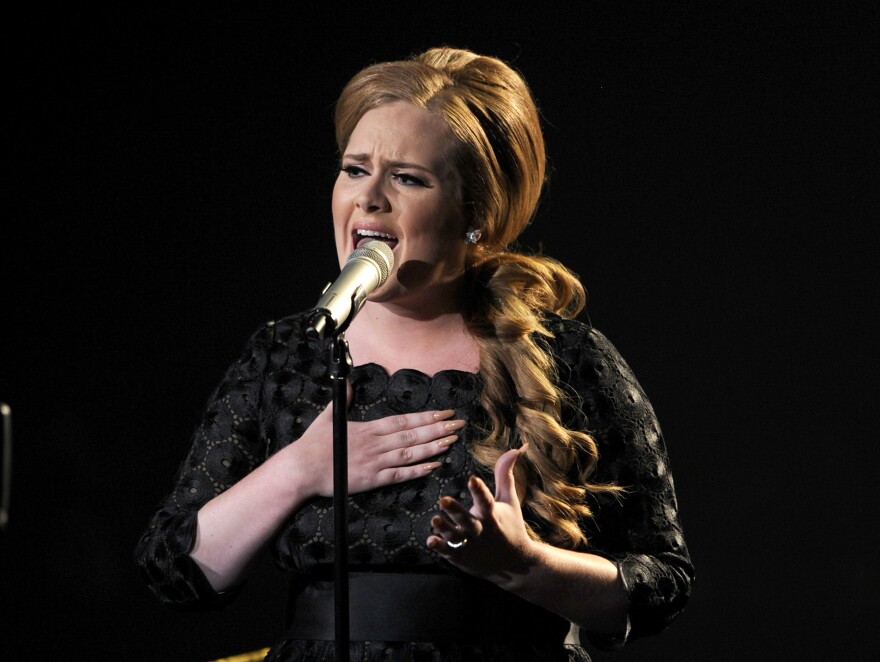
Adele's Diamond-certified 21 didn't just dominate the charts and sales records, but a consciousness. You know these songs, you've drunkenly sung along to them at karaoke, you've eaten a pint of ice cream and had a good cry listening to "Someone Like You."
February 4, 2011
James Blake releases his first full-length album
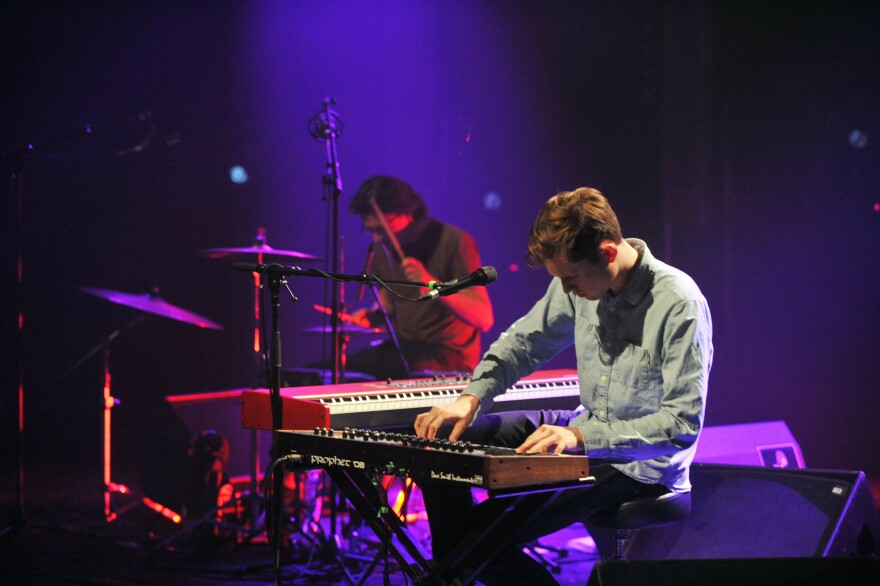
After a series of EPs that experimented with the dubstep coming out of London, James Blake turned his ears towards fractured soul music. His self-titled debut album looked outside the scene's sound, grounded by warbling bass and a paralyzing croon.
February 10, 2011
Tyler, the Creator's "Yonkers" video premieres
Odd Future was already pissing off parents and dividing critics by 2011, but it wasn't until its early ringleader released the creepy "Yonkers" video — featuring Tyler, the Creator eating a cockroach and hanging himself by its end — that the hip-hop collective made such a vile and profound impression on pop culture at large. We didn't quite know what we were getting to, and still don't.
February 13, 2011
Esperanza Spalding, best new artist (!)
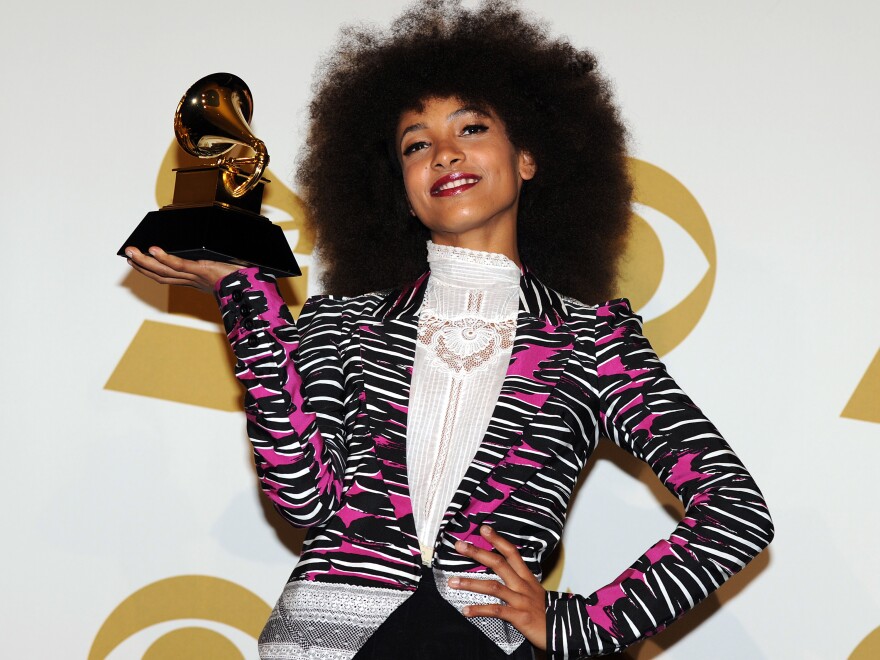
Best new artist is a Grammy category with a notoriously checkered history, but in 2011, the field was stacked. Justin Bieber. Drake. Mumford & Sons. Florence and the Machine. Oh, and our girl Esperanza Spalding: jazz bassist, singer-songwriter, pyrotechnic sparkler, preposterous long shot.
In the split second before her coup was announced, watching the telecast with my laptop open, I fired off an ill-advised oath on Twitter: "If Esperanza wins this, I'll go out and make a snow angel, naked." My next tweet was an expletive. Then, forever a man of my word, I trudged to the backyard. The drifts were well over a foot deep. I sported only a whisky bottle, my snow boots and my boxer shorts. (Put an asterisk on "naked," if you must.)
My wife, shaking her head with a mix of disbelief and pity, begrudgingly took a pic, which I posted as evidence overnight. (On NPR's A Blog Supreme, Patrick Jarenwattananon bore witness to my humiliation, discreetly, in his recap of Spalding's win.) If this was conduct unbecoming a jazz critic, I hastened to make up for it. Within hours — chastened, working with the mirthless benefit of hindsight — I analyzed Spalding's left-field triumph in a critic's notebook for The New York Times. What had changed during that sleepless interval was merely my perspective, along with Spalding's Q rating. She made perfect sense as best new artist, and not just for the obvious reasons — all that stuff about a split vote and a virtuosity bias. She was a natural talent with star power, an obsessive work ethic and a compulsion to plunge ever deeper into the music: a unicorn, as these things go.
And six years later, she has proven her durability no less than the Biebs and all the rest. At this moment, I'm waiting on the delivery of her sixth album, Exposure, the byproduct of a canny experiment in real-time creative transparency. The thing that continues to justify her Grammy coup is her swing-for-the-fences ambition. That, and the fact that she somehow still has the element of surprise on her side. --Nate Chinen, WBGO
February 13, 2011
Arcade Fire pull off shocker by winning the Grammy for album of the year
The first alternative band to win the Grammys' biggest prize seemed as genuinely shocked as Barbra Streisand (who could barely pronounce the words "The Suburbs"), as shocked as viewers who widely shrugged at the rumpled-looking crew of musicians on their screens. Win Butler swore, Régine Chassagne thanked her hometown of Montreal in French and the band hustled away to play one final song as the show's credits rolled.
March 21, 2011
The Weeknd releases House of Balloons, the first of three free mixtapes

Released as free downloads over the course of 2011, The Weeknd's three mixtapes played up anonymity and kept the jams slow, syrupy and sexy, sampling Beach House, Cocteau Twins and Aaliyah. They were also extremely effective calling cards, as musicians like Drake and Clams Casino appeared on the second and third volumes, respectively.
April 16, 2011
The Philadelphia Orchestra files for bankruptcy
When the Philadelphia Orchestra filed for bankruptcy in 2011, it struck classical music fans like a sucker-punch. How could the revered, 100-year-old orchestra famed for its unique "Philadelphia Sound" end up face down on the mat? For close observers of the classical scene in America, however, the news wasn't a complete surprise. The issues in Philly weren't the first of their kind, nor would they be the last.
In 2009, the 110-year-old Honolulu Symphony went bankrupt and 12 months later liquidated completely. The following year, the Detroit Symphony Orchestra embarked on what was called a "near-death experience," with musicians on strike for six months. The year 2012 was another rough one: Atlanta Symphony Orchestra musicians spent three weeks on the picket line, while Oct. 1 marked the beginning of a bitter 15-month lockout at the Minnesota Orchestra, during which the symphony's music director, Osmo Vänskä, resigned in protest. In 2013, the New York City Opera closed its doors after 70 years, and the following year, Atlanta was back at it with musicians locked out for two months. Also in 2014, the drama played out offstage for New York's Metropolitan Opera, which barely averted a strike amid a summer of contentious labor disputes.
While all of these organizations rebounded — some more robustly than others — the hemorrhaging budgets and labor battles suggest that old business models are no longer viable. In the age of music and video streaming, when the relevance of Bach, Verdi and Beethoven seems dwindling, purveyors of classical music are struggling to become nimble and creative. And that could turn out to be a good thing. --Tom Huizenga
May 1, 2011
Out of the Vinyl Deeps, an anthology of the work of music critic Ellen Willis, is released
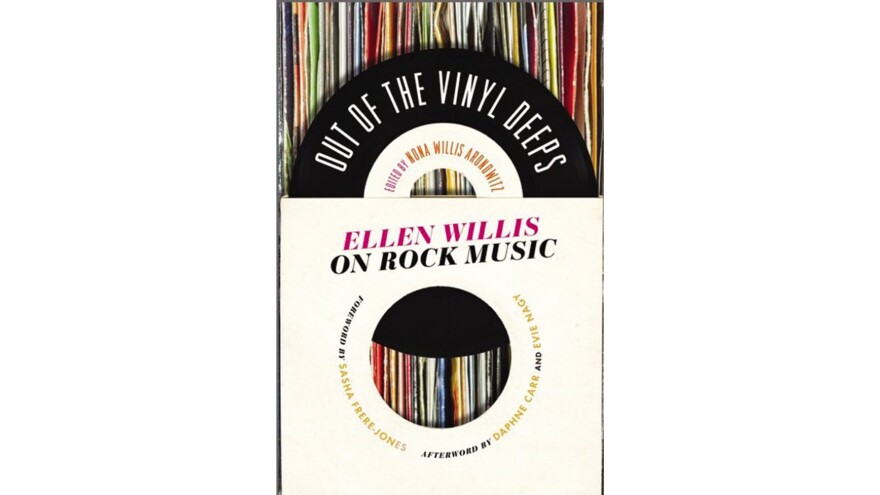
As The New Yorker's first pop music critic, Ellen Willis offered unflinchingly feminist, deeply thoughtful yet entirely approachable analysis of the music of the 1960s and '70s. The release of Out of the Vinyl Deeps, a posthumous collection of her criticism, celebrated her commitment to the belief that popular culture deserves serious engagement and reinforced her central place in the canon of music criticism.
July 14, 2011
Spotify launches in the U.S. — and ushers in the end of record collecting

I love vinyl. I love the things that are tangible about it: The artwork and liner notes are mile markers reminding me of the songs inside. I have memories of walking over to a friend's place with an armful of albums, feeling the heft of what I was carrying. I loved looking at artwork with friends while listening to an album. That feeling will forever be part of my musical upbringing.
Vinyl had a bit of a comeback, but in 2017 it has leveled out; it's never going to be the primary way of releasing music again. These days I can pluck any song from the air, discover long-dead and up-and-coming teen musicians from far parts of the world. It's an unimaginable dream come true, and it makes me happy and sad at the very same time. Happy because I can be having a conversation with friends, someone can reference a song I don't know and while the conversation is happening, I can download that tune. Sad because I miss the artwork, miss the way the art melds with the music, miss the A and B sides of an album, that hypnotic spin of the label. Video rarely ever did that for me and digital album art is awful. (This is something we should have fixed by now.)
With the birth of digital streaming services has come the end of collecting. Sure, there's a curation to it, and sure it's wondrous, but to a collector, the impermanence is frightening. How will your children share their love of music with their children? Where will Spotify, Apple Music, Pandora, Amazon, Google Play and other services be in 10 years, let alone 50? Think of all those digital presences that once felt permanent: the iPod Classic, MySpace, Napster, Rdio, Rhapsody, Slacker Radio, Grooveshark, Songza, Zune. Surely, Facebook and YouTube will be supplanted one day. The impermanence of the medium is what makes me sad, despite my love for its convenience: There's a glory in digital, but there's also a problem to solve. --Bob Boilen
July 23, 2011
Amy Winehouse (1983-2011)
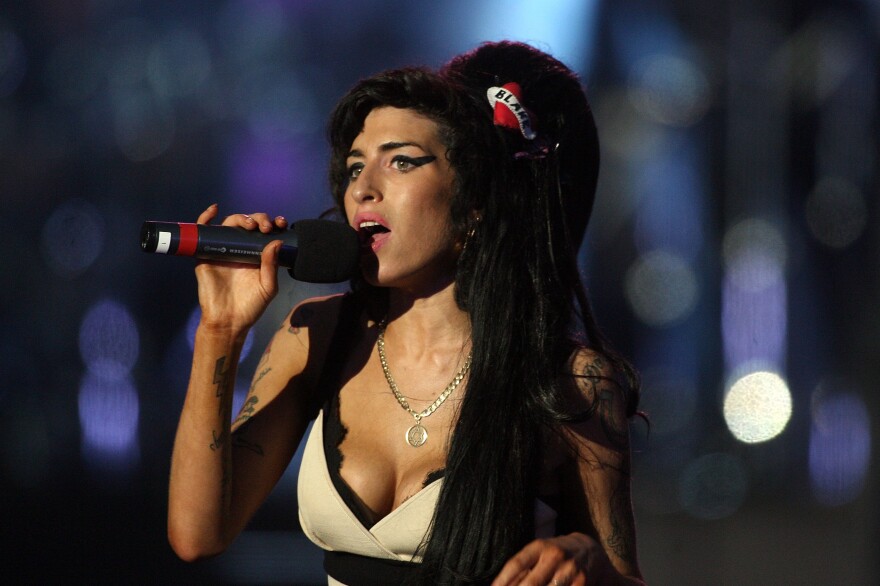
Her short life was a blues: an instance of overwhelming talent and sensitivity set free within music, then pulled toward oblivion by the loneliness she captured and fought against in song. Amy Winehouse was, it could be said, pop music's first millennial genius and that generation's first major tragedy; singers have been trying to fill the hole she left ever since, at 27, she drank herself to death.
August 19, 2011
Lana Del Rey releases the music video for "Video Games"
With its pastiche of filtered imagery, Lana Del Rey's debut, "Video Games," ignited a debate about authenticity and defined the modern day flower-crown festival aesthetic.
September 7, 2011
Seeing Alabama Shakes in Alabama

I lived in Tuscaloosa, Ala. for more than half of the past decade, relocated with my professor husband, suddenly signed up for a crash course in the perennially old, ever-new South. This new life phase rattled me, a lifelong coastal dweller, in many ways; it also re-centered me musically. And from it, I received one huge gift: I got to be there when some of the most exciting bands to emerge in the 2010s were taking baby steps.
The first time I saw Alabama Shakes, the quartet played the Bama Theatre with old favorites the Drive-By Truckers. I got there early because I'd heard from some people I trusted — Trucker Patterson Hood, for one — that I had to see this opener. Just a couple songs into their set I was hooked, especially by the presence of Brittany Howard, a bandleader whose voice and charisma shot light all the way into the dusty rafters of that WPA-era hall. "Come on Brittany, you got to come up!" she shouted, and we were all with her, striving, lifted.
After the show, Howard and her bandmates stood at the merch table selling t-shirts; the line snaked all the way up the Bama's stairs and into the balcony hallway. That's how much people needed to look Howard in the eye and say, "You moved me." I knew at that moment that I'd heard a voice of the millennial generation, one that's only grown more confident and masterful since then. --Ann Powers
September 21, 2011
R.E.M. breaks up
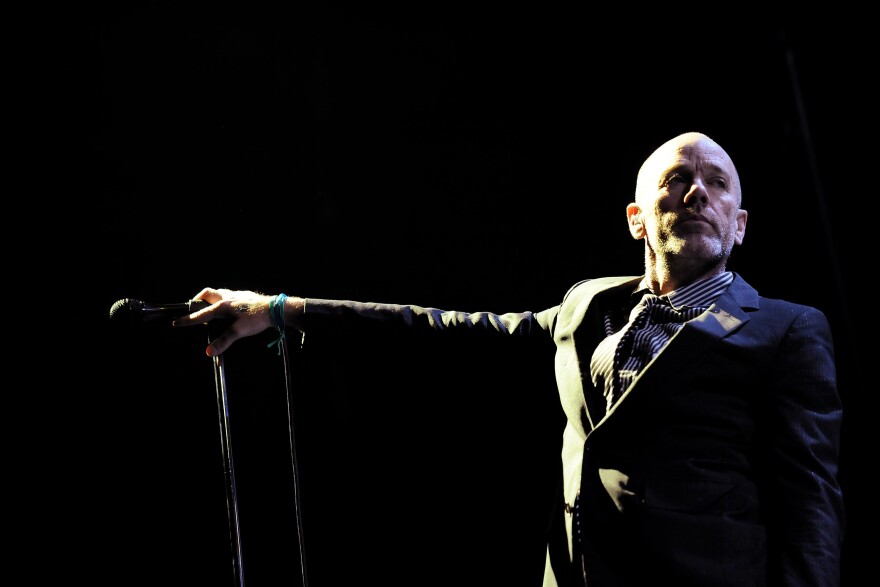
After 31 years and 15 albums, R.E.M., the uncool kids who made cool, weird and tender music, broke up. "It doesn't always feel like the past tense," Mike Mills told NPR. "The records are still there, the music is still there, we're still here — we just won't be recording and touring together anymore."
November 10, 2011
Calle 13 wins nine Latin Grammys

The Puerto Rican band not only won nine of its 10 Latin Grammy nominations (including album of the year and record of the year), but used every speech to deliver political messages about payola and student demonstrations across Latin America.
November 15, 2011
Drake releases Take Care
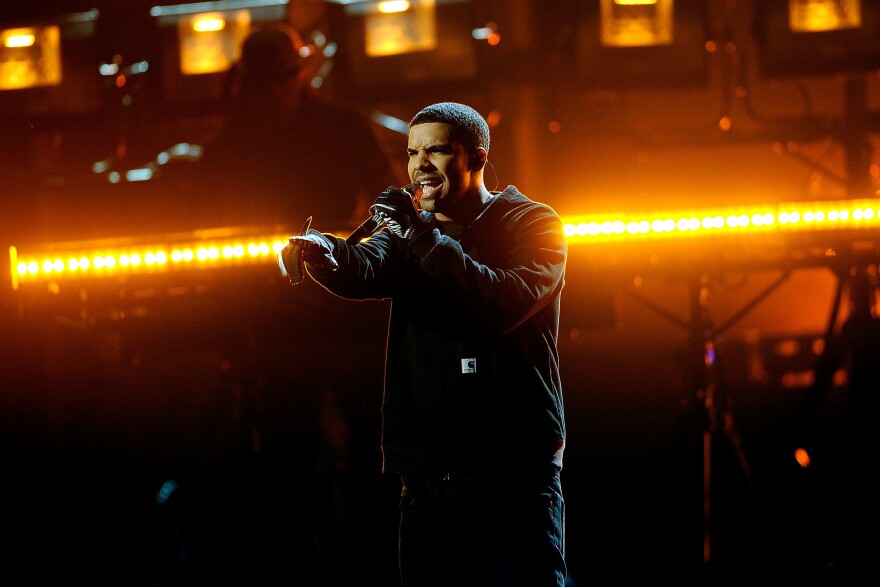
Drake's woozy, tear-stained form of honesty was the key to his moment of career-altering success with 2011's Take Care. Through 18 tracks ripe with R&B samples and exaggerated, subaquatic interludes, Drake delivered nimble lyrics, came into his own rhyme cadence and mustered up the courage to be seen as vulnerable. The Toronto rapper avoided the sophomore slump by reaching beyond the formulaic fallacies of rap, a move that which ironically landed him on the top of the charts and on the Grammy stage. Switching up his persona from hopeless romantic to fratty playboy every other track, Drizzy carved himself as out as the type to dry his tears between the booty cheeks of a stripper and buy her a post-coital Birkin bag.
Though the album is chock-full of bangers — "The Motto" added the term #YOLO to America's lexicon within a matter of months — it's the melancholy tracks that grabbed listeners and forced fans to accept Drake's maturing artistry. The Rihanna-assisted title track pulls inspiration from Afrobeat while the rapper pines for intimacy. "The Real Her" hosts one of Andre 3000's best guest verses to date. And the sullen loneliness of "Marvin's Room," punctuated by a recorded phone conversation with an ex-lover, is the heartbeat of the album. Abel Tesfaye, now known to the world as R&B game-changer The Weeknd, was a huge artistic inspiration on this LP, providing visceral notes all over the project.
Drake's ability to look like the underdog spearheaded a turning point in his evolution to lovable f***boy and paved his path to success. Take Care debuted at No. 1 on the Billboard Hot 100 and earned Drake his first Grammy, in the category of Best Rap Album. Even just a couple of years into his exploding career, the recognition was already overdue. --Sidney Madden
Copyright 2023 NPR. To see more, visit https://www.npr.org. 9(MDM3NjYwMjA5MDE1MjA1MzQ1NDk1N2ZmZQ004))

